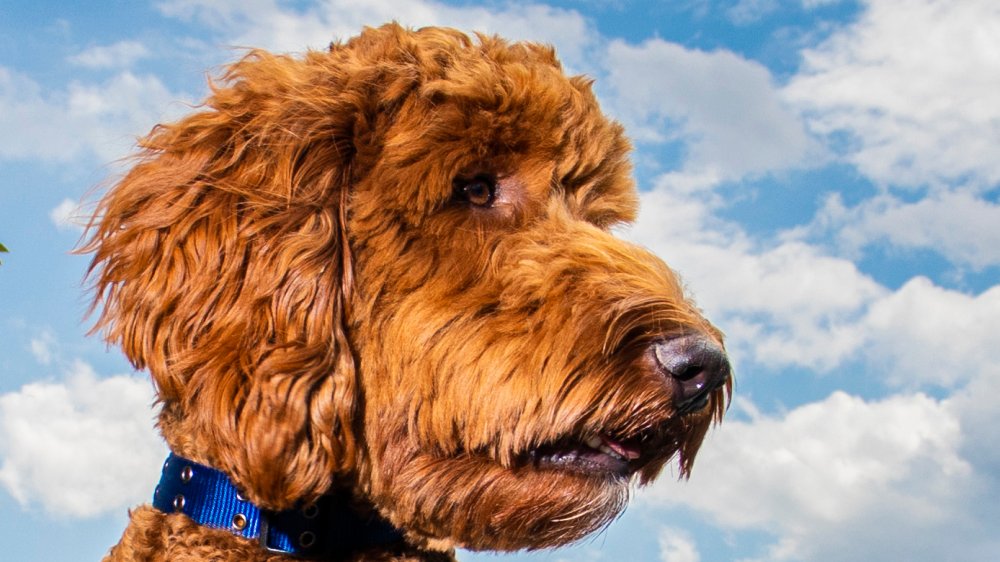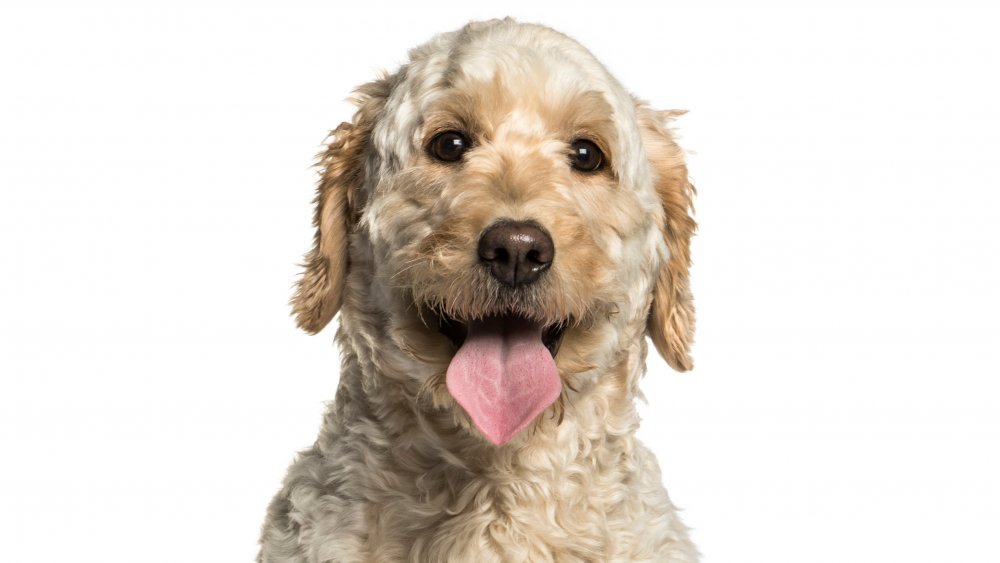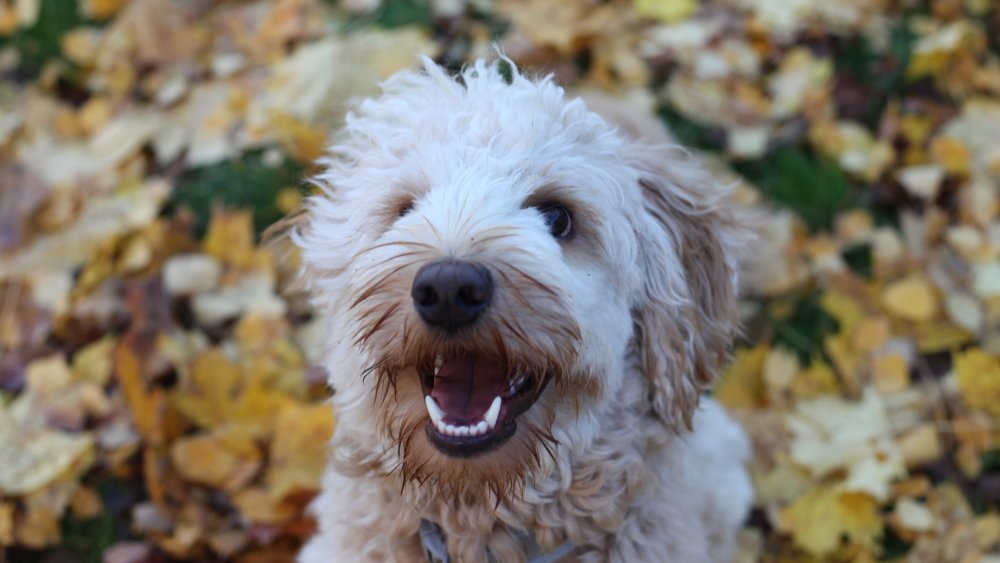The Reason The Labradoodle Creator Regrets Creating The Dog
For eons, people have relished in the tales of man's hubris, from the tragedy of Daedelus and Icarus to Michael Crichton's Jurassic Park series to the story of the people at Universal who think that there's no upper limit on the number of times you can keep making movies about Jurassic Park. We are naturally drawn in by the all-too-real promise that our crowning achievements may just be our greatest regrets. As Nikola Tesla may or may not have said, "you may live to see man-made horrors beyond your comprehension."
And all of this is a long winded way of saying that in the late 80s, a guy named Wally bred the world's first Labradoodles and he's been regretting it ever since. Let's dig into why that is.
The Labradoodle: a hell of our own making
As has been noted, the road to hell is paved with "who's a good boy" intentions, and breeding the Labradoodle was no exception. In an interview on the Australian podcast "Sum Of All Parts," one Wally Conron recounted the whole dark affair: it was 1989, and he had been tasked with breeding a designer guide dog for a blind woman whose husband was allergic to pups. After no small amount of trial and error, he combined labrador retriever and poodle genes into a trio of mop-looking puppies named Sheik, Sultan, and Simon. While Sultan wound up hypoallergenic and well suited to a life of furry service, Sheik and Simon were marketed as a new breed of super dog with an adorable portmanteau nickname that would make Don Draper proud. As word spread, shadier dog breeders wanted in on the action, and a market for canine companions that look astonishingly similar to Muppets exploded almost overnight.
The Labradoodle abyss stares back
It would be difficult to overstate just how intensely Conron seems to regret the creation of the Labradoodle, having been quoted as saying "I opened a Pandora box and released a Frankenstein monster" and "Why people are breeding them today, I haven't got a clue." In a particularly jarring interview with Psychology Today, he said that the breed has created a playground for disreputable breeders, thrilled to sell their creations as hypoallergenic without doing their homework first. He mentions that in the second batch of Labradoodles he bred, fewer than a third of them were born with non-allergenic coats. He says that the dogs are largely either born with hereditary defects or "crazy." The final nail in the coffin? He claims to be living on a pension "in a little shoebox flat," and that he prefers that to the comfortable life he could have breeding more "monsters."


